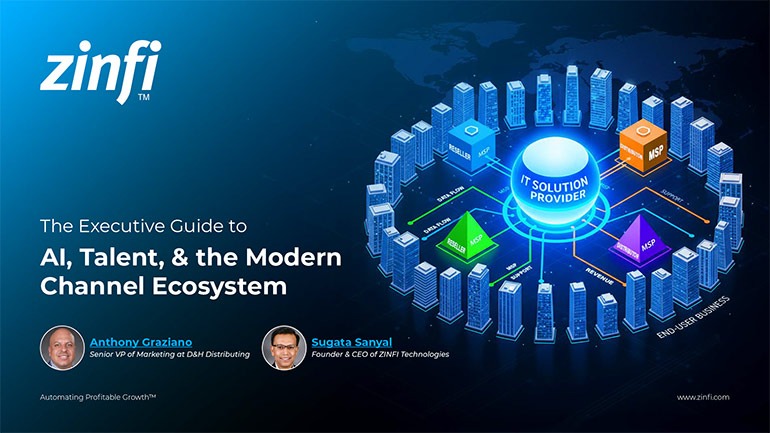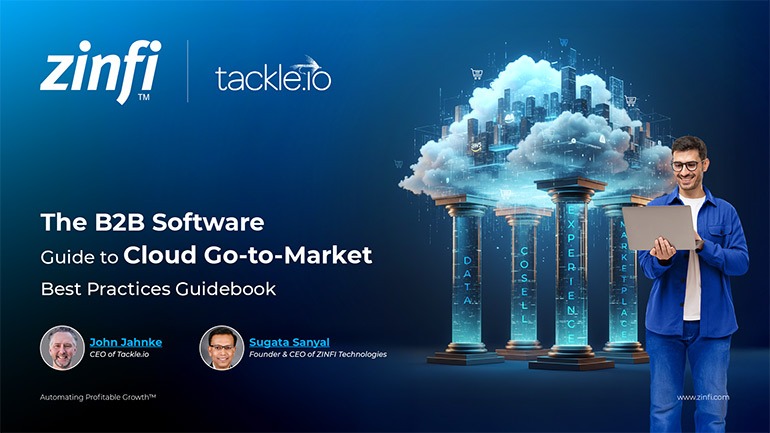Best Practices Articles

Evolution of Channel Marketing Software
Over the past three decades, the channel has become a very important way for many companies to reach end users, whether they are business buyers or consumers. Whether you’re talking about retail or professional channels, the channel is here to stay. However, with globalization, and with products being manufactured in one country and being sold in another, channel marketing has become quite complex. Luckily, over the past couple of decades with the evolution of the Internet, and especially over the last 10 years with the evolution of the cloud, things are really coming together when it comes to channel marketing. A whole new category of channel marketing software is evolving that allows vendors throughout the channel to implement true end-to-end marketing and provide productivity and growth at a much lower cost than before.
A very brief history of channel marketing software
Let’s take a step back for a moment and look at the history of channel marketing software. When computers hit the market and became a staple tool in most businesses in the 80s, most companies managed their channels with some very basic tools like Lotus 1-2-3 or VisiCalc or some other spreadsheet program. Prior to that, of course, everything was manual, but some level of automation began to emerge and people began to use it to keep track of rebates, rewards, incentives, various types of sales activities and so on using spreadsheets. That was the first level of evolution.
When products like Adobe and other creative software suites became available, companies were using and designing marketing collateral that partners could co-brand and make available to customers. Gradually, with the advent of the Internet, the partner portal emerged and soon became an important channel marketing software tool, even though it had very limited capabilities and was used primarily for data warehousing. Nonetheless, the partner portal became a foundation on which today’s channel marketing software is still building.
Niche use cases, vertical-focused tools
So if you look at the current state of things, today’s channel marketing software consists primarily of marketing tools that vendors make available to multiple partners in various countries. Through these tools, the vendors try to communicate with their end-users, generate demand and manage relations. That has become the primary focus of channel marketing software. There are multiple players today who provide various sorts of channel marketing software and tools to vendor organizations. Most of these tools are focused on certain verticals. Whether they are technology-centric, consumer-centric, manufacturing-centric or insurance-centric, their origins are generally based on the industry background of their founders, and therefore on a particular kind of organizational knowledge for a specific industry. As a result of that fact, a lot of today’s channel marketing software tends to address niche use cases that are specific to one vertical or another.
Based on information from industry analysts like Forrester, SiriusDecisions and others, there are now a couple dozen channel marketing software providers that collectively cover multiple industry segments. However, there is no single specific vendor that covers all use cases. We have also seen an extension of channel marketing software from marketing to productivity management activities, and therefore a whole category of partner relationship management has evolved from that. Some vendors, like ZINFI, provide both—partner relationship management as well as channel marketing automation—which are offered through an integrated software platform. At ZINFI we call it Unified Partner Management™.
The future is bright: reduced pricing, broader adoption, better integration, cross-pollination
So when we think about the future of channel marketing—as use cases from various verticals start to overlap and as channel marketing software products mature in specific segments and can be extended to other segments—we will see the emergence of more multi-segment providers. This is good for buyers and users. We will see cross-pollination of marketing ideas whereby marketers can learn from one industry vertical and apply those techniques to another. This is part of the ongoing evolution channel marketing software. We will also see a significant reduction in costs powered by ease of use at the product level and by reduction in cloud infrastructure costs, and the increased affordability will drive broader adoption and substantially increase the market space.
The importance of phased implementation
We continue to see among the customers we serve that adoption of channel marketing software in today’s marketplace happens in multiple phases, and we sincerely expect this to remain the case for some time to come. In other articles, we have pointed out the adoption of channel marketing software is directly linked to a company’s channel programs and the maturity of those programs. Organizations that have more mature channel programs tend to have a better deployment experience with their channel marketing software, exemplified by better organizational buy-in, more and better engagement with partners, appropriate partner marketing concierge investment, and so on.
However, if organizations with less mature channel programs overinvest in channel marketing software, it can turn out to be a big waste of money and severely complicate their go-to-market approaches. Therefore, at ZINFI we always recommend to our customers to implement channel marketing software in phases. The first phase is making sure that the channel partners are provided with a basic set of tools for marketing. This could be as simple as offering social syndication and web syndication tools. Once that’s accomplished, most partners—especially in segments where solutions are sold—tend to rely quite a bit on events, so event marketing becomes another important channel marketing software feature. Then, as the channel marketing program matures further, the channel marketing software should be able to start automating incentives management in the areas of market development funds, rewards, rebates, etc.
At we look to the future, we at ZINFI believe in this evolutionary vision of channel marketing software—and it’s a vision we are actively working to create—where the entire spectrum of channel management becomes unified. When it comes to market-to-partner, market-with-partner or market-through-partner activities, the entire category of channel marketing software has evolved from a very basic level of discrete marketing activities to a unified approach where partner relationship management, channel marketing automation and channel sales enablement all fit together in a single unified solution that vendors can deploy sequentially—not only to drive revenue, but also to reduce costs and drive scalability and uniformity across channel programs globally.
Best Practices Guidebook
 Modernizing Channel Marketing: AI and Ecosystem Enablement Best Practices
Modernizing Channel Marketing: AI and Ecosystem Enablement Best PracticesDownload for FREE
 The Channel’s Shift to Partner-Led With AI Best Practices
The Channel’s Shift to Partner-Led With AI Best PracticesDownload for FREE
 Hyperscalers, ISVs, and AI: Shaping the Future of B2B Software Distribution
Hyperscalers, ISVs, and AI: Shaping the Future of B2B Software DistributionDownload for FREE
 Definitive Guide to a Partner Ecosystem-First Sales Strategy
Definitive Guide to a Partner Ecosystem-First Sales StrategyDownload for FREE
 The Partner-Led Digital and AI Transformation Best Practices
The Partner-Led Digital and AI Transformation Best PracticesDownload for FREE
 Startup Talent Recruitment: Hiring Missionaries, Not Mercenaries
Startup Talent Recruitment: Hiring Missionaries, Not MercenariesDownload for FREE
 The Future of Partner Relationship Management with AI in Partnerships
The Future of Partner Relationship Management with AI in PartnershipsDownload for FREE
 Cybersecurity for the 99%: Strategies from the Frontline
Cybersecurity for the 99%: Strategies from the FrontlineDownload for FREE
 Mastering Partner Relationships: A Strategic Approach to Business Growth
Mastering Partner Relationships: A Strategic Approach to Business GrowthDownload for FREE
 Mastering Partner Relationship Management: Keys to SaaS Channel Success
Mastering Partner Relationship Management: Keys to SaaS Channel SuccessDownload for FREE
 Navigating the AI Revolution: Guide for Partners in the Microsoft Ecosystem
Navigating the AI Revolution: Guide for Partners in the Microsoft EcosystemDownload for FREE
 Mastering the Modern Buyers Journey: Sales Leader’s Guide to AI & Engagement
Mastering the Modern Buyers Journey: Sales Leader’s Guide to AI & EngagementDownload for FREE










